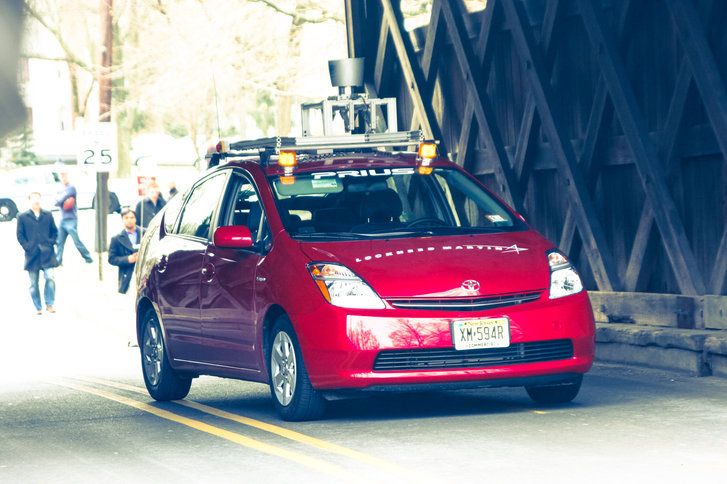Britain wants to spearhead the driverless car trend, and has announced a government plan to do so.
The legislative and regulatory framework for developing and testing driverless cars on UK roads will be fully examined by the end of 2014 it has been announced. Essentially, the framework will put the necessary parts in place for driverless cars to become fully legal in the UK.
The government has offered up £10 million for the development of a British town or city as a testing ground. Milton Keynes is already ahead of the pack, announcing plans in November to have 20 driverless pods operating on lanes separated from pedestrians between the railway station and the city centre by 2015. The city plans to expand further to 100 pods - which would have a top speed of 12mph - by 2017.
Given that driverless cars are newer technology, governments around the world don't yet have laws to define how they can operate on streets. The UK joins France, which already has a 10-year plan for driverless cars. Germany has begun street testing too, while the US allows driverless cars on the road in a few of its states.
As regulators work to legalise driverless cars, manufacturers are looking to capitalise. Nissan announced earlier this year that it would have driverless cars in the hands of people by 2020. BMW, Tesla, Google, Volvo (which is testing in a Swedish town), Audi, and a slew of other car manufacturers have also announced plans to build driverless vehicles.
Google has been instrumental in development of the technology, with a fleet of converted Toyota Prius hybrids already deployed in the US. Company co-founder Sergey Brin believes that they will be commercially available before the end of the decade.
The British government announced in July that driverless cars can begin testing on public roads by the end of 2013. To begin with, only lightly used rural or suburban roads will be allowed. A co-driver must also be present to take over in emergencies. The specific areas haven't yet been specified.

